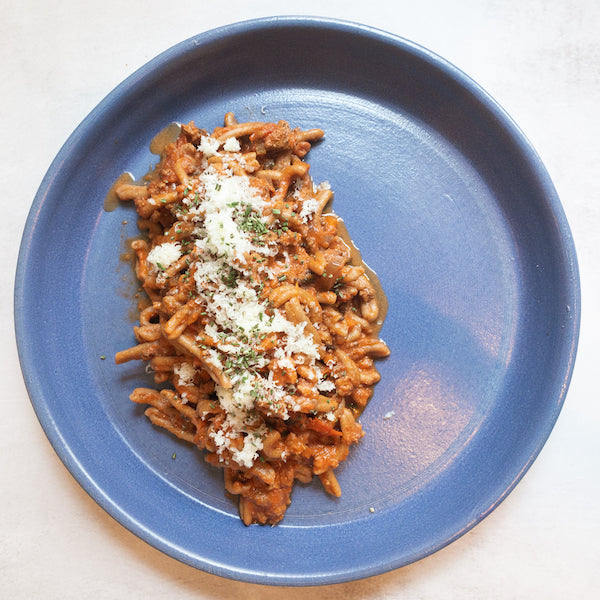Bolognese Recipe
Posted on August 06 2020,
Bolognese is the ultimate comfort food; it is the sauce 2020 needs. I make large batches of bolognese and freeze it in two-person portions so that I can pull out precisely enough for dinner whenever I want it. It can be exceptional with many different kinds of ground meat, with or without mushrooms, fresh or canned tomatoes, and pancetta can be substituted with bacon or left out altogether. I like to finish the sauce with heavy cream and fresh rosemary.

Once the vegetables are cooked and you have deglazed with wine remove from the pan. It is time to brown your meat. The Maillard effect is the process in which a chemical reaction between amino acids and reducing sugars that gives browned 
When the ground beef is browned, add milk and braise the meat. The lactic acid tenderizes the protein and adds richness to the sauce, don't skip this step. Braise the ground beef and pork on low until the liquid is about 85 percent reduced, then add the vegetables, pancetta, and tomato. I like to use San Marzano tomatoes and hand-crush them (you can mill or blend them depending on the texture you want). 
A note on seasoning your bolognese: don't wait until the end to add salt, season as you go. It would be best if you seasoned the mire pox as it cooks as well as the ground meat. Seasoning as you go will result in a more complex flavor, and you are less likely to over season it at the end.
Pappardelle made from the egg yolk pasta dough or the whole wheat casarecci that Sfoglina Denver makes with the rustic red wheat berry both pair really well with the bolognese. Finish the bolognese with a little bit of cream, parmesan, fresh rosemary, and a ladle of the pasta water. An ounce or two of pasta water will help emulsify the sauce.


0 comments